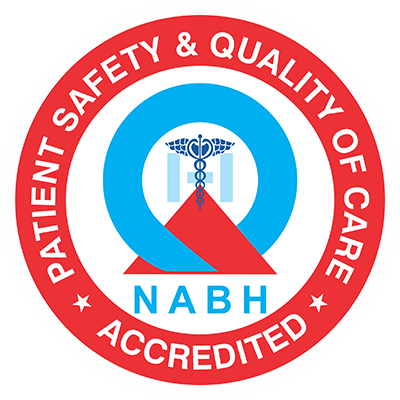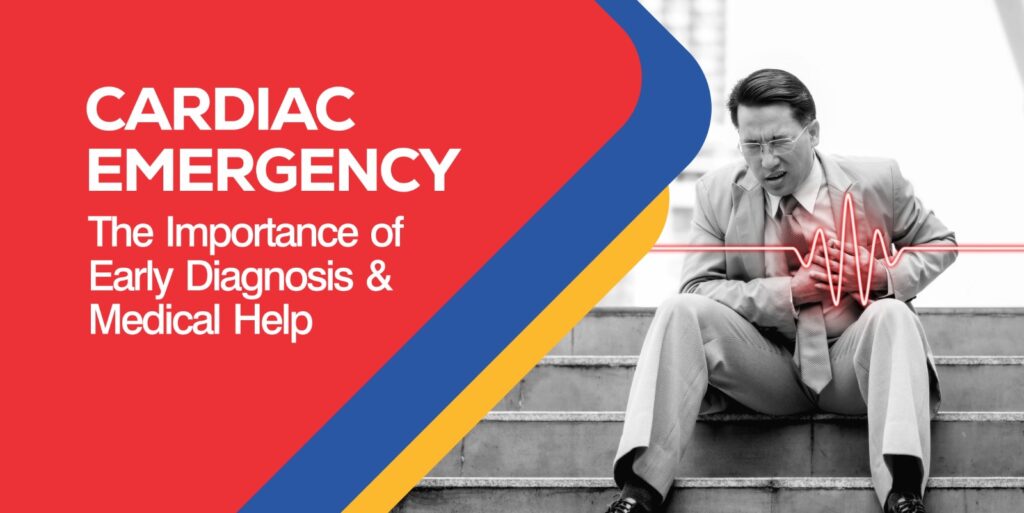Hari, a young executive in his 30s experienced what he initially dismissed as heartburn. After a busy day, he felt a sudden discomfort in his chest and light-headedness. Assuming it was indigestion, or acidity, he continued with his evening’s tasks. His uneasiness continued, and before he could realise it, the situation had taken a bad turn. By the time his colleagues took him to the nearest hospital, he was in the midst of a cardiac emergency. Quick intervention by the team saved his life, but the experience revealed the critical importance of recognising early warning signs and seeking immediate help for heart-related symptoms.
This story is not unique. Most people around the world underestimate the severity of heart symptoms, leading to delayed treatment with potentially severe outcomes, and which lands them in a hospital bed. And the demographic of cardiac patients is getting younger and younger – largely due to the high-stress, high-indulgence, highly-sedentary lifestyle.
The Growing Statistics of Cardiac Emergencies
Cardiac emergencies are a global health crisis. According to the World Health Organization (WHO), cardiovascular diseases are the leading cause of death globally, with approximately 18 million deaths each year. In India, heart disease contributes to about 25% of deaths annually.
One study published in the Journal of the American Heart Association revealed that more than 50% of people who suffer from a heart attack delay seeking medical attention, with the misconception that symptoms will subside on their own. This delay is often fatal; the sooner one receives medical care, the greater their chances of survival. Immediate diagnosis and intervention can make all the difference.
What are the Symptoms of a Cardiac Emergency?
Knowing the symptoms of a cardiac emergency is essential for taking swift action. While some symptoms are obvious, others may be subtle and easily overlooked. The key signs to watch for include:
- Chest pain or discomfort: Often described as a squeezing feeling, pressure, or fullness in the chest that may radiate to the arms, neck, jaw, or back
- Shortness of breath: This can occur even without chest pain, particularly if the heart is struggling to pump effectively
- Light-headedness or dizziness: The feeling of being faint or light-headed which indicates insufficient blood flow to the brain
- Cold sweat: Unexpected, cold sweating is often a sign of a heart attack
- Nausea or vomiting: Particularly in women, these symptoms can accompany a heart attack
- Unusual fatigue: Feeling overwhelmingly tired for no apparent reason may indicate that the heart isn’t functioning optimally
These symptoms can vary between men and women, with women more likely to experience subtle symptoms, like nausea and fatigue, which makes early detection even more challenging.
Why Early Diagnosis and Medical Help are Crucial
A heart attack, or myocardial infarction, occurs when blood flow to part of the heart is blocked, often due to plaque buildup in the arteries. The longer the heart goes without blood flow, the more damage it incurs, potentially leading to heart failure or death. Early diagnosis and immediate medical intervention can help restore blood flow, minimising damage and drastically improving the chances of survival.
Modern life-saving interventions like thrombolytic therapy (clot-busting medications) and primary angioplasty (opening blocked arteries) can reverse or limit heart damage.
Preventing Cardiac Emergencies with Regular Checkups
In addition to recognising emergency symptoms, it is vital to monitor heart health proactively. Regular checkups – especially for those with risk factors like high blood pressure, diabetes, or a family history of heart disease – can detect early signs and prevent emergencies before they happen. Cardiac screening tests, such as an electrocardiogram (ECG), stress test, and blood tests, can provide insights into heart health and allow for preventive measures.
To prevent cardiac problems, men and women should adopt a heart-healthy lifestyle:
- Eat a balanced diet with lean proteins, whole grains, and low sodium
- Exercise regularly, aiming for 150 minutes a week
- Maintain a healthy weight
- Regularly monitor blood pressure, cholesterol, and blood sugar
- Avoid smoking and limit alcohol intake
- Reduce stress
- Get 7–9 hours of quality sleep
Small, consistent changes support long-term heart health and reduce the risk of heart disease, and thus cardiac emergencies.
Cardiac emergencies can strike unexpectedly, and the consequences of delayed treatment are severe. Recognising the symptoms and seeking immediate medical attention can save lives. BBR Hospitals, Hyderabad is committed to providing top-tier cardiac care, with cutting-edge technology and expert cross-functional teams ready to act at a moment’s notice.
The Hospital is equipped to handle cardiac emergencies with speed and precision, including access to advanced imaging, catheterization labs, and life-saving procedures. The hospital emphasizes early diagnosis and has rapid response protocols in place, ensuring timely and effective treatment.
Beyond emergency care, BBR Hospitals provides comprehensive cardiac programs focusing on prevention, lifestyle counselling, and personalised cardiac rehabilitation to support long-term heart health.



